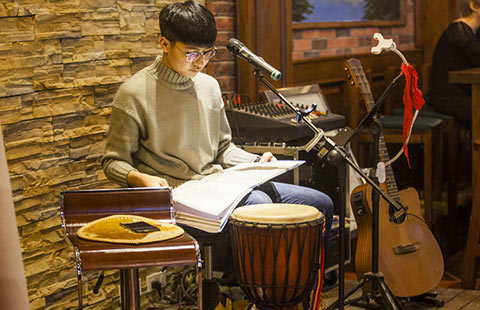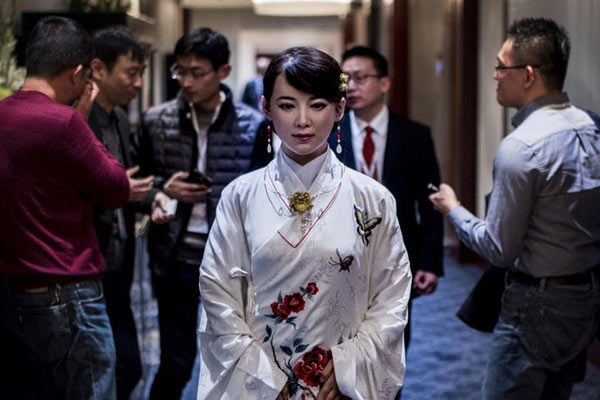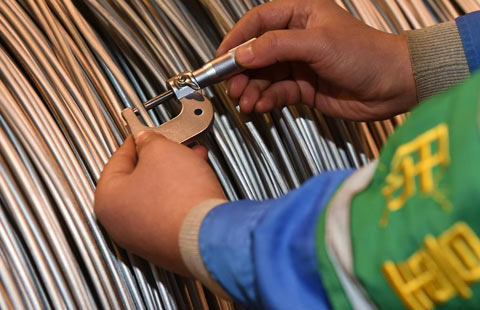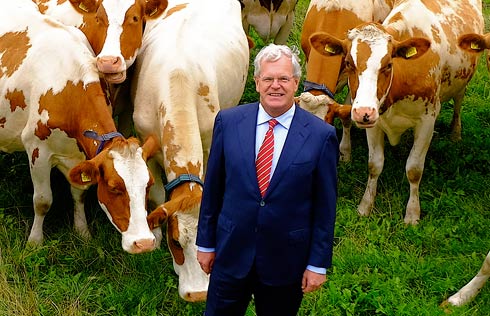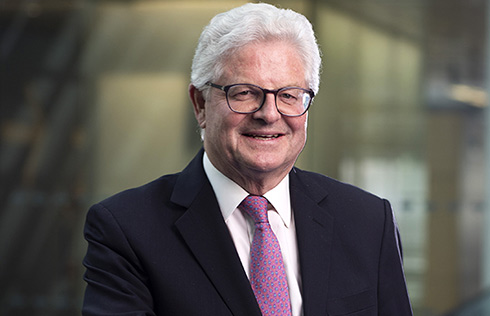Xi visit to boost bilateral innovation ties
 |
|
Alain Gaschen, deputy head of mission at the Swiss embassy in Beijing. |
President Xi Jinping's visit to Switzerland this week is expected to deepen the countries' unique partnership, particularly in innovation, according to a senior Swiss diplomat.
Alain Gaschen, minister and deputy head of mission at the Swiss embassy in Beijing, said the priority of China's 13th Five-Year Plan (2016-20) is innovation, to create an economy that is more sustainable, and that Switzerland has a lot to offer in this area.
"Swiss products are competitive because of innovation and high quality. We have companies with high technology, with much added value that can contribute to China's high-end economy," he said on Wednesday.
"Switzerland is year after year the most innovative country in the world, so it makes sense for China and Switzerland to team up on that."
Xi will make a state visit to Switzerland from Sunday until Wednesday, attending activities including the 47th World Economic Forum in Davos.
China and Switzerland established an innovative strategic partnership in April during a state visit to China by Johann Schneider-Ammann, the former president of the Swiss Confederation. It was the first such partnership for China.
Switzerland is willing to share its innovation experience with China, especially in manufacturing, Gaschen said. "We already have more than 20 dialogues underway in many areas, from the environment, labor and human rights to topics including intellectual property, finance, migration-you name it."
Last year, Switzerland opened a general consulate in Chengdu, capital of Sichuan province, its fifth diplomatic representation after the embassy in Beijing and consulates in Shanghai, Guangzhou and Hong Kong.
Xi's trip will also promote the European nation as a tourist destination for Chinese, Gaschen said.
"We have taken some visa facilitation measures-such as quick visa approval taking only two days and issuing long-term and multi-entry visas-to encourage Chinese tourism," he said, adding that less than 2 percent of visa applications from China are refused.
Swiss government data show the number of hotel bookings by Chinese tourists rose by 33 percent in 2015, while China is now the fourth-largest source of visitors, behind only Germany, the United States and the United Kingdom.
Gaschen said Switzerland has welcomed the China-led Belt and Road Initiative, hailing it as a strategy that will bring Europe and Asia closer and boost economic and social development.
The Silk Road Economic Belt and 21st Century Maritime Silk Road, first proposed by Xi in 2013, aim to revive ancient trade routes, with an emphasis on infrastructure.
"We have Swiss companies that can contribute to infrastructure, transportation and clean energy," Gaschen said.
Switzerland has also been supportive by signing up as a founding member of the Asian Infrastructure Investment Bank, which since its launch in late 2015 has issued loans totaling $1.73 billion for nine projects in seven countries.
Gaschen also spoke highly of China's role in international affairs and said he hopes China will renew its commitment to global issues such as world peace, climate change and free trade during Xi's state visit.
In addition to becoming the first Chinese president to attend the World Economic Forum, Xi will also visit the International Olympic Committee headquarters in Lausanne during his four-day visit.
In terms of winter sports, Gaschen said: "We see lots of room for cooperation. Winter sports were born in Switzerland, they're just part of our national identity."
Switzerland was among the first Western countries to establish diplomatic relations with the People's Republic of China and was among the first group of European countries to recognize China's market economy status.
In December, Foreign Minister Wang Yi said the two countries should effectively implement the innovative strategic partnership as a new impetus for global economic growth.
The nations' free trade agreement, signed in 2013, had benefited both sides, he said, adding, "We should take the discussion on the upgraded version of the agreement as an opportunity to jointly facilitate trade liberalization."






